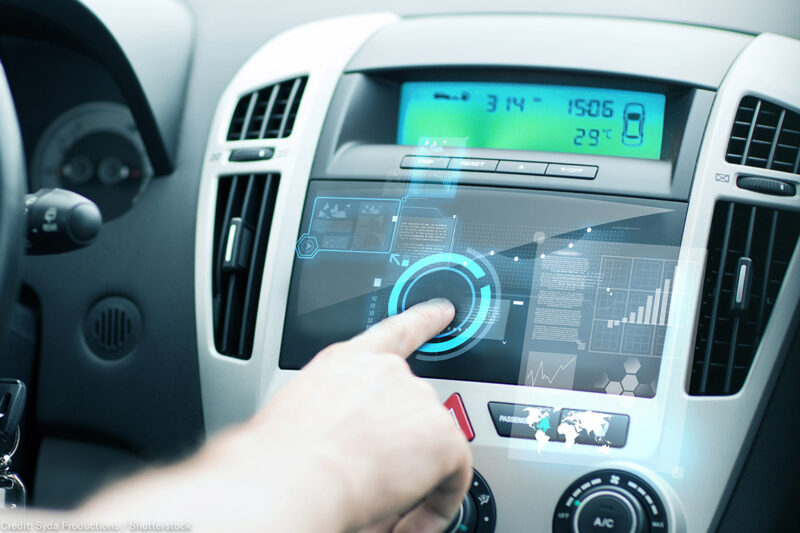
Our cars donтАЩt just take us from point A to point B anymore. They now play our favorite Spotify playlists, read us our text messages, and make phone calls. They may inside and outside a car as well as . They may one day and purportedly by assessing our emailsтАЩ тАЬemotional tone.тАЭ
Modern cars are essentially roving computers, recording and storing unprecedented types and quantities of data about our personal lives тАФ location history and . The growing amount of personal information they collect and store raises a number of important , including what Fourth Amendment protections we can expect against unjustified access by law enforcement.
The question has already come up in a case, Mobley v. State, before the Georgia Supreme Court, where we argue in an amicus brief that cops cannot conduct warrantless searches of computers тАФ even if that computer happens to be on wheels. The brief was filed with the │╘╣╧╓▒▓е of Georgia and Riana Pfefferkorn at StanfordтАЩs Center for Internet and Society.
The Mobley case began with a tragic car crash. Shortly after the crash, and without getting a search warrant, the police entered Mr. MobleyтАЩs car and downloaded data from the carтАЩs Event Data Recorder, also known as a vehicle тАЬblack box.тАЭ Black boxes can record a litany of data, including speed, seatbelt use, size and position of people in the car, and other information in the seconds before and after a collision. Unbeknownst to many drivers, these devices are now standard in modern cars; about of consumer light vehicles sold today come ready-equipped with a black box.
When the police downloaded data from MobleyтАЩs black box, they captured his pre-crash speed. This was what they believed to be their smoking gun. With this data, the government was able to increase the severity of the charge against Mobley.
Though this case involves a search of black box data revealing only the carтАЩs speed, braking pattern, and related information, the rule that the Georgia Supreme Court sets in this case will also affect how other kinds of car data тАФ and what this data reveals about the people inside of cars тАФ is protected in the future.
The state of Georgia is asserting that downloading vehicle data stored in Mr. MobleyтАЩs car without first obtaining a warrant is justified under what is known as the тАЬvehicle exceptionтАЭ to the Fourth AmendmentтАЩs warrant requirement. The state cites a number of U.S. Supreme Court cases dating back as far as the 1920s that hold that police, under this exception, do not need a warrant to search a car for physical items. This exception was created due to the тАЬready mobility of vehicles,тАЭ which might drive away before a warrant is obtained, and because of peopleтАЩs reduced expectation of privacy in cars due to the тАЬpervasive regulation of vehicles capable of traveling on the public highways.тАЭ But as we argue in our brief, the U.S. Supreme Court has recently made clear that older rules permitting warrantless searches for physical items cannot be automatically extended to searches of digital data.
The quantities and types of information that might be discovered by a manual search of a carтАЩs crevices and compartments pale in comparison to the kinds of comprehensive data stored on carsтАЩ computers today. This requires greater protections under the Fourth Amendment, just as the U.S. Supreme Court required a warrant for searching peopleтАЩs seized during an arrest, even though older cases allow searches of physical items in an arresteeтАЩs pockets without a warrant. The Supreme Court has likewise held that a warrant is required to access cell phone location history stored by a personтАЩs phone company, despite older cases saying that pre-digital-age records held by companies are accessible without a warrant.
The smartphone in your hand, the computer on your desk, and the car you drive today have more in common than you may realize. ItтАЩs time they share the same Fourth Amendment protections as well.
As our cars come equipped with increasingly more advanced technologies, the volume and scope of sensitive, will only increase, as will the need for strong Fourth Amendment protections to keep this information safe from warrantless searches and unconstitutional intrusion. The Georgia Supreme Court has the opportunity to be a national leader in protecting against this growing threat.

